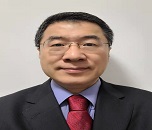Scientific Program

Dr Hongyi Sun
Associate Professor, Department of Advanced Design and Systems Engineering, Hong Kong, China
Title: The U Model of Chinese Wisdom:The Impact of Culture on Innovation and Entrepreneurship
Biography:
Dr Hongyi SUN is an Associate Professor in the Department of Advanced Design and Systems Engineering. He has education and working experiences in Mainland China, Nordic Europe and Hong Kong. His teaching and research areas include the management of technological innovation, supply chain management, manufacturing strategy, and innovation and entrepreneurship education. Since 2010, he has also offered courses in innovation and entrepreneurship for students at bachelor, master and doctor levels. He was awarded CityU Teaching Excellence Award in 2005 and 2011, the first prize research award on innovation and entrepreneurship education 2013 by China Association of Higher Education, the best Practical/Policy paper on International Conference on Entrepreneurship Education by Emerald Publisher, 2015 CityU Professional Development Award and 2018 IEOM Global Engineering Education Award. Dr Sun has delivered hundreds of training workshops and seminars on innovation and entrepreneurship for universities and industries.
Abstract
This paper compares innovation and entrepreneurship in economies with Buddhism cultures, including Bhutan, Cambodia, China, Japan, S Korea, Lao, Myanmar, Nepal, Singapore, Thailand, Vietnam, as well as Hong Kong and Taiwan regions. It was found that those regions with around 30% of Buddhist population are much more innovative and entrepreneurial than others. It was observed that the Religious Diversity Index (RDI) are quite higher in those 30% regions. Looking at all the regions, RDI is correlated with GDP per capita, innovation index, entrepreneurial index, freedom of business as well as happiness index. The result was explained and explored by the U Model of Chinese Wisdom. The U Model covers three stages of wisdom development by incorporating the diverse Chinese Ancient, Buddhism, Confucianism and Daoism cultures, i.e., the ABCD summary of Chinese traditional culture. The first stage of the U model help people to calm down their mind and liberate from mental anxieties and physical problems by the Buddhism and/or Taoism methods (i.e., Liberation Path). The second stage is nurturing the capability of generating intuitive and creative ideas inspired by Zen Buddhism and/or Daoism meditation for enlightenment of intelligence (i.e., Enlightenment path). The third stage is the intention of contribution to the society according to the Confucianism tenet of (i.e., Contribution path). The U Model was then elaborated into a 6Pi framework of innovation and entrepreneurship, covering the steps from Problem identification, Preparation of information, Ponderation for incubation, Proposal with intuition, Pivot based on inspection to Plan for implementation. The U model and the 6Pi framework incorporate Chinese Buddhism, Confucianism and Daoism cultures and wisdom from the Western perspectives of innovation and entrepreneurship. It may reveal the secret of Eastern Asian economic miracle and provide suggestions for its further development in Asia as well as the whole Buddhism regions.
Keywords: The U model, Innovation and Entrepreneurship, RDI, 6Pi Framework
- Start-up Entrepreneurship and Innovation
- Leadership and Organization development
- Business Management, Financial Management & Strategic Management
- Business, Growth and Competitiveness
- Women Entrepreneurship and Creative Entrepreneurship
- Entrepreneurial Learning and Communities of Practice
- Speaking and Selling Opportunities for Women Entrepreneurs

